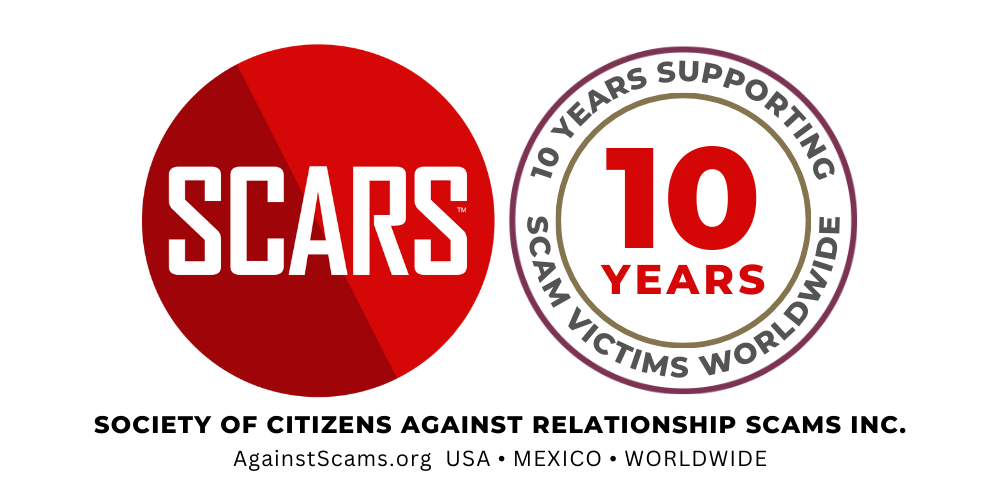
How to Evaluate Your Own Mental Health After a Scam
After a scam, you protect your safety and rebuild stability by evaluating your mental health, recognizing signs like betrayal trauma, dissociation, and brain fog, and choosing clear next steps.
Key Topics:
-
Understanding Betrayal Trauma Basics
-
Recognizing Dissociation & Its Impact
-
Assessing Cognitive Dysfunction – How You Think You Are Thinking
-
Awareness of Other Potential Disorders
-
Moving Forward with Self-Compassion
After the Scam Ends, Your Mind is in Turmoil
About 97% of Scam Victims Suffer from Betrayal Trauma – You are Not Alone
Please Note: This is to help you understand your mental health. Experiencing trauma does not mean you are crazy or mentally ill. It means you have experienced something terrible and have been injured. The only goal should be to heal.
A Compassionate Guide to Evaluating Your Mental Health After a Scam
You’ve taken a courageous step by exploring how a scam may have impacted your mental health. Being scammed isn’t just a financial hit; it can shake your sense of trust and stability. This brief guide helps you assess your well-being, focusing on betrayal trauma, dissociation, cognitive dysfunction, and other potential challenges.
We’ll use simple questions and tips to reflect on your experiences in a safe, non-judgmental way. You’re not alone, and healing is possible. Let’s begin.
Understanding Betrayal Trauma
Betrayal trauma often hits hardest after a scam, especially when someone you trusted, like in a romantic partner or investment advisor, turns out to be deceptive. It is a betrayal of your trust, and it hits hard, harder than you could have imagined. It feels like a personal violation, an act of violence, as if the ground beneath you has shifted. You might feel angry at the scammer, frustrated with yourself, or struggle to trust others. Physical signs can include restlessness, headaches, or a tight feeling in your chest.
To check if betrayal trauma is affecting you, ask yourself these questions:
- Are you finding it hard to believe in people’s good intentions?
- Have you pulled back from friends or family out of fear of being hurt again?
- Do “what if” thoughts, like questioning everyone’s motives, keep swirling in your mind?
Write down when these feelings pop up over a week. If they’re disrupting your daily life, like making you avoid social events or work, that’s a signal to pay attention. Healing starts with self-compassion. Remind yourself that scammers are skilled manipulators, and this doesn’t define your worth. Try small steps, like confiding in a trusted friend, to rebuild trust slowly.
Of course, trauma can manifest in other ways too. This is why we always recommend that scam victims see a qualified trauma therapist to help them one-on-one. Support groups will not help you recover from or learn to manage trauma.
Recognizing Dissociation
Dissociation is your mind’s way of shielding you from overwhelming emotions, but it can feel very unsettling. After a scam, you might feel detached, like you’re watching your life through a foggy lens. It could show up as emotional numbness, where even happy moments feel flat, or as derealization, where the world seems dreamlike. You might zone out during conversations or feel like your memories of the scam belong to someone else. You might also have difficulty thinking clearly. These are all normal when a person has gone through this kind of experience. What you are feeling is valid and real.
To evaluate dissociation, reflect on these questions.
- Do you ever feel like an observer in your own life, not fully present?
- Are your memories of the scam blurry or distant?
- Have you noticed a lack of emotional connection, even to things you used to enjoy?
Keep track of these moments for a few days in a journal or just in notes. If they happen often, especially during stress, dissociation might be at play.
Mindfulness and grounding exercises can help, like the 5-4-3-2-1 technique: name five things you see, four you can touch, three you hear, two you smell, and one you taste. This anchors you in the moment. Be gentle with yourself; dissociation is a coping mechanism. If it persists, a trauma-informed therapist can guide you toward reconnection.
Assessing Cognitive Dysfunction – Trauma Affects Thinking
The traumatic stress of a scam can cloud your thinking, leading to what’s often called brain fog (we call it scam fog).
Cognitive dysfunction is a big phrase, but it just means your mind is having a hard time because it is full of thoughts of the scam and the scammer. It makes it hard to focus, make decisions, or remember things. You could forget appointments, struggle to process information, or second-guess every choice out of fear of another mistake. This isn’t about being less capable; it’s the trauma and anxiety disrupting your mental clarity, making even simple tasks feel draining.
To assess this, consider these questions:
- Are you struggling to concentrate on daily life, work, or hobbies more than before?
- Do you obsess over decisions, leading to what feels like mental exhaustion or become overwhelmed?
- Have you become more forgetful or disorganized, like misplacing items often?
Keep track of these experiences daily for a week. If you notice patterns, like trouble multitasking or slower problem-solving, it’s likely a traumatic stress response. Support your brain with good sleep, nutritious regularly-timed meals, and mindfulness breaks. A brisk walk can also clear the fog, or just sitting outside. If these issues linger and affect your quality of life, a cognitive behavioral therapist can offer tools to sharpen your focus and help you to recover.
Awareness of Other Potential Challenges
Scams can trigger a range of mental health challenges beyond the core three. Anxiety disorders might show up as constant worry about finances or new scams, sometimes with panic attacks. Depression could bring persistent sadness, loss of interest in activities, or feelings of hopelessness. Post-traumatic stress disorder (PTSD) might emerge if the scam involved intense fear, leading to flashbacks or avoidance of reminders. You could also notice obsessive-compulsive behaviors, like compulsively checking accounts, or turn to substances to cope. Shame and low self-esteem often weave through these, fueling social withdrawal.
To build awareness, monitor your moods and behaviors:
- Are you feeling down or anxious most days?
- Do intrusive thoughts about the scam or scammer disrupt your sleep or appetite?
- Have you leaned on unhealthy habits to numb the pain?
Take notes about your moods or use a mood tracker app or journal to spot trends over a couple of weeks.
If symptoms align with these disorders and persist, they’re worth addressing. Online support groups or hotlines for scam victims can offer validation and connection.
Moving Forward with Self-Compassion
You’re doing something very important by checking in with your mental health.
Recovery isn’t a straight line, but each moment of reflection builds strength.
Practice self-kindness daily, maybe with affirmations like:
- It was not my fault
- I am a survivor
- I am not alone
- I am worthy – Axios
- This is all real – Vera
- I can recover from this
When you’re ready, connect with supportive people, like a friend who listens without judgment. Professional help, like a therapist specializing in trauma, is a sign of strength, not weakness. They can offer tailored strategies to navigate betrayal trauma, dissociation, or cognitive struggles.
Also, begin the process of recovery by learning. Read this website, and when you are ready, enroll in the FREE SCARS Institute Scam Survivor’s School at www.SCARSeducation.org
If any of these signs feel intense or persistent, reach out to mental health services or organizations like your local crisis hotline. You’ve survived the scam, and that resilience is proof you’re capable of healing. Take it one day at a time, and know that brighter days are waiting. You’re stronger than you realize, and this guide is just one step toward reclaiming your peace.
If you need someone to talk to at any time, dial 988 in the U.S. or Canada.
About Therapy to Help You
If you are thinking about finding a therapist – Don’t Wait – Get Help – Therapy & Therapists
Therapy and therapists play a crucial role in helping scam victims recover from the emotional and psychological impact of their experiences. They provide a safe space for victims to process their trauma, rebuild trust, and develop coping strategies. Through guided support, therapists help victims regain their self-esteem, navigate complex emotions, and reestablish a sense of security, enabling them to move forward with their lives.
Learn what therapy can do to help you and how to get the most from it here.
What Next?
This is not the only thing you need to learn. Recovery is an education, a learning process, and there is much you need to know to prevent this from happening again. You have to develop a ‘Survivor’s Mindset.’ Now, go back to the Home Page and read the rest.
When you are ready, enroll in our FREE Scam Survivor’s School to start learning to recover. Just go to www.SCARSeducation.org and enroll; it is completely free. You will learn more about what it takes to recover.
SCARS Support & Recovery
- If you are a victim of scams, go to www.ScamVictimsSupport.org for real knowledge and help
- Enroll in SCARS Scam Survivor’s School now at www.SCARSeducation.org
- To report criminals, visit https://reporting.AgainstScams.org – we will NEVER give your data to money recovery companies like some do!
- Follow us and find our podcasts, webinars, and helpful videos on YouTube: https://www.youtube.com/@RomancescamsNowcom
- Learn about the Psychology of Scams at www.ScamPsychology.org
- Dig deeper into the reality of scams, fraud, and cybercrime at www.ScamsNOW.com and www.RomanceScamsNOW.com
- Scam Survivor’s Stories: www.ScamSurvivorStories.org
- For Scam Victim Advocates visit www.ScamVictimsAdvocates.org
- See more scammer photos on www.ScammerPhotos.com
Important Things For Scam Victims To Know
- Importance Of Starting Off Right For New Scam Victims
- Importance Of Journaling For New Scam Victims
- Importance For Scam Victims Of Support & Recovery Group
- Importance Of Learning For Scam Victims Recovering
- Importance Of Trauma Therapy For Scam Victims
- Importance Of Scam Victims Avoiding The Vigilante Trap
- SCARS 3 Steps For New Scam Victims
- Every New Scam Victim Needs To Understand What To Do Next!
- Scam Victims Reporting Scams And Interacting With The Police
- Essential Information for New Scam Victims on SCARS RomanceScamsNOW.com
- Learn More on SCARS ScamsNOW.com




















![niprc[1]](https://scamvictimssupport.org/wp-content/uploads/2024/01/niprc1.png)
Leave A Comment